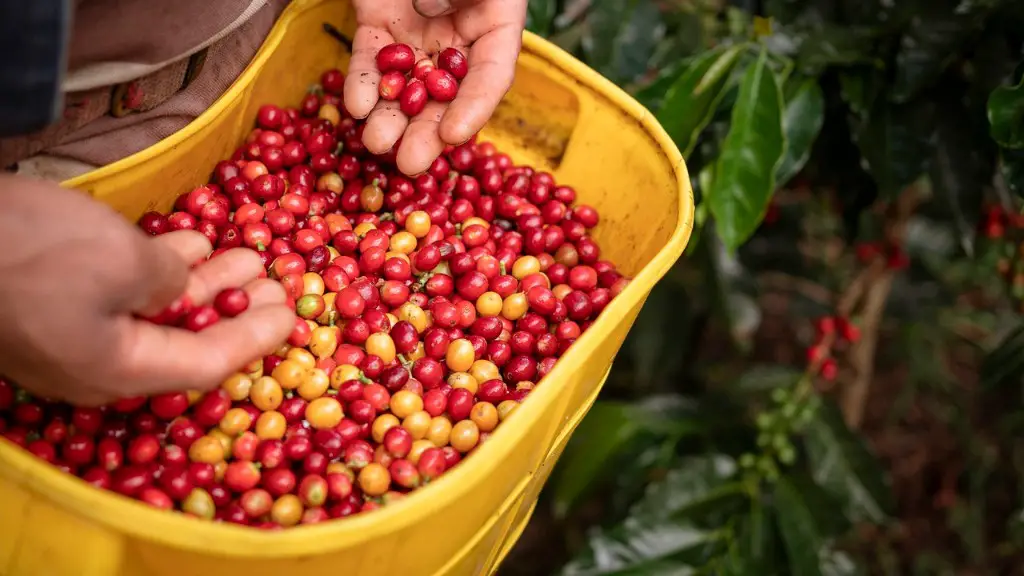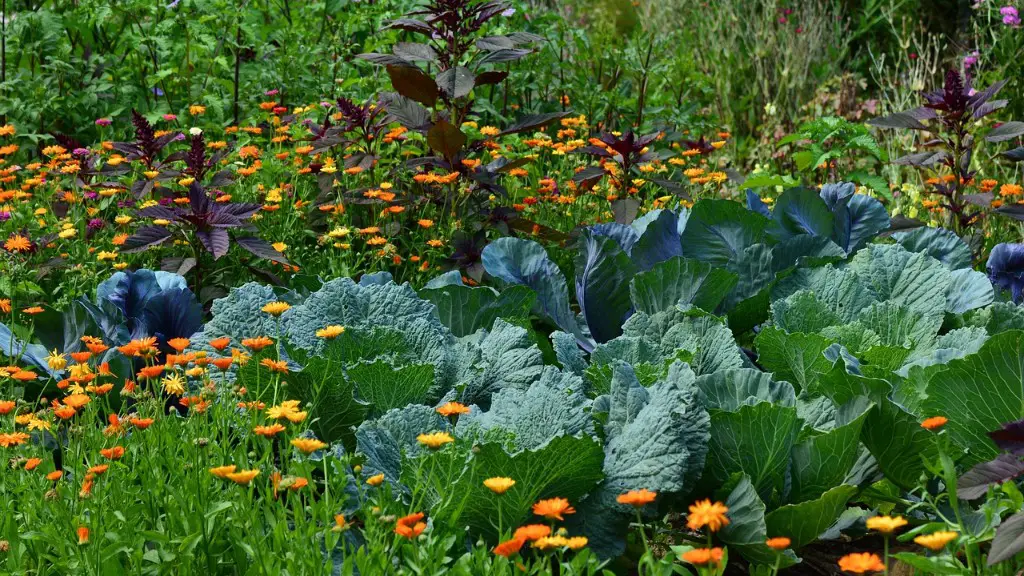Agricultural activities support nutrition by providing food for humans. This food can be eaten directly, i.e. fruits, vegetables, grains, and animal products; or it can be converted into processed foods, such as bread and cakes. The careful use of land, water, and other resources helps produce enough food to ensure that people have enough properly balanced nutrition. Many of the basic ingredients found in our daily diets are derived from agriculture, and without it, humans would struggle to feed themselves.
Agriculture also provides fibre for cloth and other products. Cotton and wool, two of the most commonly used fibres, come from plants and animals farmed for other products, such as food. Clothing, shelter and even paper products are made from fibre derived from agricultural production. This reinforces the notion that the products we consume are connected to the production of agricultural goods.
In addition to food and fibre, pharmaceutical products, renewable energy and raw materials for construction and industrial purposes can also be derived from agricultural production. Pharmaceutical products include the production of antibiotics and other medicines. Also, the production of biofuel is increasing to aid in the reduction of emissions. Agricultural production is also used to create a variety of construction materials, such as brick, lumber, and concrete.
Agriculture is a crucial contributor to the global economy. Not only does it provide a steady flow of food and materials, but it also helps support entire nations with employment opportunities for farmers and labourers. Agriculture is the backbone of many nations and works to maintain their financial stability.
Agricultural activities are also essential for satisfying consumer demand. By managing resources in the agricultural sector, farmers and producers are able to meet the needs of consumers and create products that can be traded for profit. This business model helps promote economic growth in developing nations.
Environmental Impact
The human impact of agricultural activity cannot be denied. Unfortunately, agricultural activity can also be a large contributor to pollution, deforestation and erosion. Agriculture activities, such as livestock production and the use of chemical fertilizers, cause serious damage to the environment.
To reduce the environmental impact of agriculture, farmers and producers must take steps to improve soil health, reduce the use of fossil fuels, and balance the use of resources with the need to keep production costs low. For example, organic agriculture has been proven to reduce environmental damage and enhance the quality of food. Also, no-tillage farming helps save valuable topsoil and agricultural inputs, while supporting soil structure, water holding capacity and fertility.
Furthermore, agricultural councils are responsible for implementing and enforcing environmental regulations. This is done to ensure that agricultural activity falls within allowed limits and that the environment can continue to sustainably provide us with agricultural products.
Technology
Agricultural technology has been instrumental in improving the efficiency and productivity of agricultural systems. By harnessing new technologies and automations, modern farmers are able to reduce the amount of manual labour required to produce a crop. For example, automated irrigation systems reduce water wastage and crop losses, while GPS-guided tractors allow for accurate planting with minimal soil disruption.
In addition to new technologies, the development of new seed varieties has also improved agricultural output. By manipulating genetic code in plants and animals, scientists have developed strains that are more resistant to pests and disease, as well as strains that are more drought tolerant. This has allowed farmers to increase food production and improve yields without expanding acreage.
Education
Education is a major component of agricultural activities. There are institutes, universities, and associations that are dedicated to researching and teaching sustainable farming techniques. Through this education, farmers, producers, and consumers can learn about the importance of preserving the environment, using effective practices, and utilizing proper equipment.
By educating farmers and producers, we can ensure that they are better equipped to meet the changing demands of modern agriculture. Through training and hands-on learning, farmers and producers can gain the necessary knowledge and skills to maximize output and reduce their impact on the environment.
Industrialization
With the advancement of industry, the need for sustainable agricultural production has become even more vital. Now more than ever, agricultural production must be efficient and robust. This means that farmers must find new ways of producing higher yields and ensuring that the crops meet the demands of the market. To do this, farmers must adopt new technologies and farming techniques that are designed to reduce wastage and increase output.
Industrialized production involves the use of modern farming techniques and technologies that support increased yields at a lower cost. This includes the use of mechanized implements, irrigation systems, and fertilizers, as well as data systems that can monitor crop health and inform farmers when it is time to rotate or harvest crops.
Economics
Agricultural economics is an important field in understanding a nation’s economic health. It analyzes various factors related to the production, pricing, regulation, and distribution of agricultural products and services. Agricultural economics can also be used to assess the relative health of the industry and how farmers, producers, and consumers interact with each other.
By studying the current state of agriculture, governments are better equipped to address issues that may impact the industry. This includes understanding how agricultural prices are determined and how food supply and demand can be managed. Agricultural economics also studies strategies to reduce global food waste and developing new ways to increase the production of agricultural goods.
Technology and the Future of Agriculture
Modern technology is playing a large role in the future of agriculture. Automation and mechanization are becoming more commonplace, and the use of big data and artificial intelligence is allowing farmers to make far better informed decisions. In the future, technology will help agricultural production become more efficient, cost-effective, and sustainable.
The development of precision agriculture is allowing farmers to place sensors on their crops to better monitor growth and respond quickly to fluctuations in the environment. This can lead to higher yields and improved quality of the crop. Additionally, robotic farming is opening up a new area of farming, allowing farmers and agricultural operations to be more efficient and less exposed to the changing weather and climate.
As technological advancements continue to develop, so too will the ability to collect and interpret data from sensors, drones and other smart machines. This data, in turn, will inform farmers on how to enhance agricultural output and ensure sustainable agriculture.
Conclusion
Agriculture impacts our lives in a variety of ways, from providing sustenance and clothing to being a crucial contributor to the global economy. In the future, technology and advancements in agricultural production will enable farmers to increase yields and manage resources more efficiently to ensure sustainable agriculture. By understanding the importance and impact of agriculture, we can continue the legacy of providing safe and healthy food to the world.

